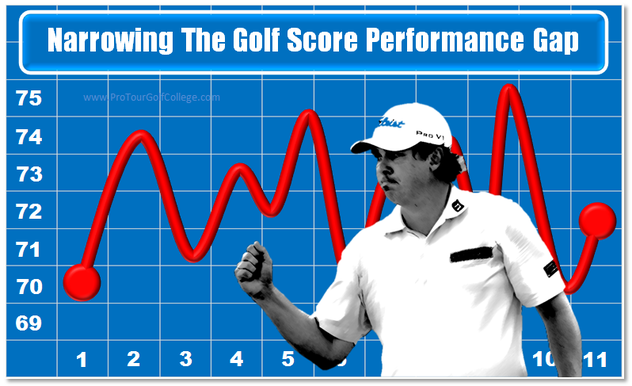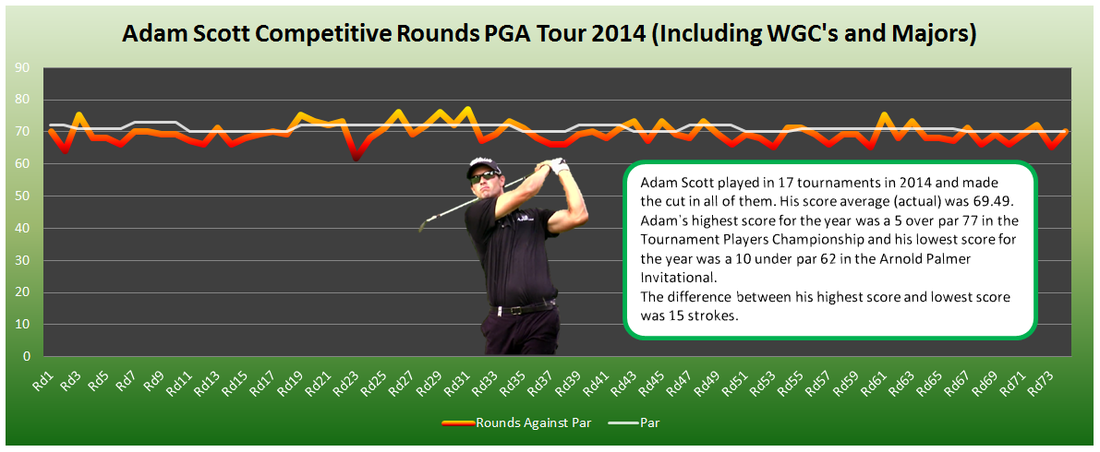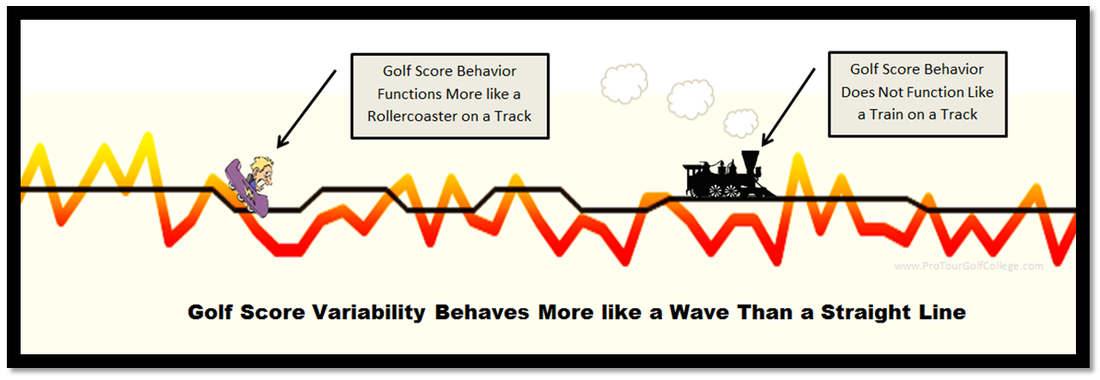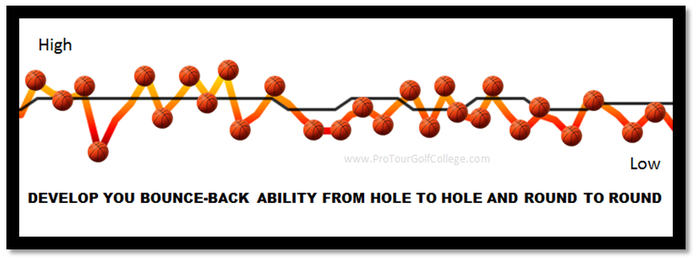|
You are not your golf performance, but you are your golf potential. Huh? What do I mean by this strange and ambiguous statement, and why is it important? I mean that you are not your golf score or your golf swing when you are having a bad day—or even a good day, it is something you do, its called the performance, and it is not who you are, and it’s not even close to describing your potential for continuously improving you golf score. At Pro Tour Golf College we are very fortunate to work with a lot of very good golfers who aspire to be top level amateur golfers or even professional golfers, and one of the things that we truly believe is that every golfer we work with has the potential to improve as long as they don’t define themselves by their current results. This is not easy to do as it sounds, but is essential for making progress with your golf. Your result on the day--the score you write on your score card is not who you are, and it's not the barometer you should use to define your overall ability. You golf scores can improve because you can keep upgrading your ability. Remember this word "ability," more about it later. Have a good look at Adam Scott’s golf score behavior (below) from one round to next on the PGA Tour in 2014. Does it look balanced and consistent to you? Far from it right? If Adam defined his overall potential by his bad rounds of golf he more than likely would have given up playing golf years ago. He knows that for every poor score he has he knows and believes that he has the potential to play a lot better. The Only Ability that Matters is Score Bounce-Back Ability You can clearly see that Adam's golf score behavior from round to round is erratic and inconsistent and moves up and down just like a roller coaster with many highs and lows in it. But look closely at the score behavior and you will notice that his real ability is to keep bouncing his high scores to lower scores. Remember this. Can you see how many times over the season he produced a high score and bounced back with a lower one? That's the reason his scoring behavior looks like it does, it's because of his consistent ability to produce lower scores after higher scores.  The white line running through the center of his performance line is the par of the courses he played over the season. Notice the par line has less highs and lows, which makes sense because the par over a week generally stays the same, which makes the score behavior around it as I said look erratic and inconsistent. The Golf Score Performance Gap Your golf score results from one round to the next is the one variable in the performance mix that will continually change, no matter how good you get. Your golf scores will always behave like a roller-coaster that travels up and down a track, as opposed to the way a train travels along a relatively flat and level piece of track. But the real key to interpreting this erratic score behavior is to understand that in Adam's case his scores operate within a 15 shot window. That is, his highest score for the season was a 77 and his lowest score was a 62, and all his golf score behavior operated within this 15 stroke window. Now this might surprise you to learn that there’s so much difference between his highest score and his lowest score especially since he is one of the best golfers in the world, but this is actually quite normal with all professional golfers, and even average amateur golfers.  Narrowing Your Golf Score Performance Gap What was the stroke difference between your highest score and lowest score over the whole season last year? Why is this important? Well, it’s important because it perfectly expresses the reality of playing competitive golf, that performances, results or the outcomes you produce from round to round will vary widely, and yet, you need to continually remind yourself that there's always potential to improve by narrowing the gap between your high scores and your low scores. Your best strategy for reducing the width of your golf score performance gap is to analyse your higher scores and look for the types of shots you play during the round that tend to increase your score average on a hole thus leading to higher scores. For example; many advanced and elite amateurs hit one or two wide tee-shots during a round that often lead to double bogeys and worse. What is your golf shot 'Achilles Heel' during a round? Develop Your Back-Up Scoring Ability to Improve Your Bounce-Back Work on lowering your high score average by building an effective back-up scoring ability because you need to understand that the majority of your rounds are going to be a struggle to score which means you won't be hitting your tee-shots and approach shots to your level of expectation so you will need effective back-up skills that keep your scoring under control. In Adam Scott's case his tee to green game was exceptional over the season but he still missed about 6 greens per round on average each round, however because of his effective scrambling ability from 30 yards and in, and his ability from the sand and in the rough around the greens he was able to convert potential bogeys into pars 50 to 60 percent of the time.  Perth and Jakarta Perth and Jakarta Adam Scott like many successful professional golfers had many low rounds over the course of his season, but he also had some higher rounds. However because he works hard on developing and honing his back-up scoring skills to improve his bounce-back scoring ability his roller-coaster of golf scores over a season adds up to a very low scoring average in tournaments. His scoring average (actual) over the 2014 season ended up at 69.49 and earned him more than 4 million dollars in the process, and that is what ultimately counts in professional golf. So get to work on developing your bounce-back scoring ability by improving your back-up scoring skills so you can narrow the performance gap between your highest and lowest golf scores and we guarantee that you will start to score lower more often and get ever closer to your ultimate scoring goal. Lawrie Montague and David Milne - Pro Tour Golf College The Professional Golf Tour Training College Comments are closed.
|
Archives
June 2019
|
Proudly Supported By
Copyright © 2011 - 2018 Pro Tour Golf College
Website Managed By Golf Performance Media
All Rights Reserved
Website Managed By Golf Performance Media
All Rights Reserved






 RSS Feed
RSS Feed



